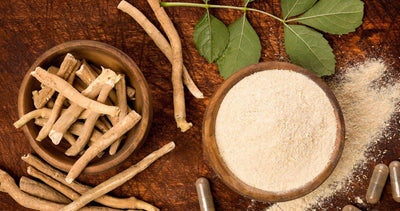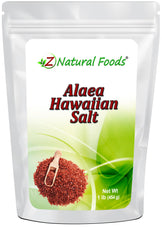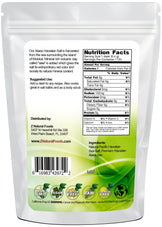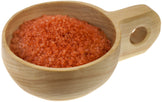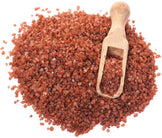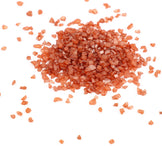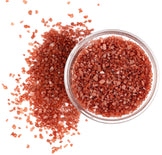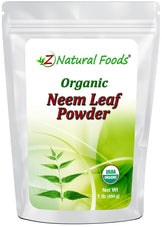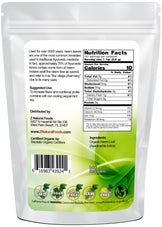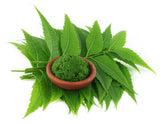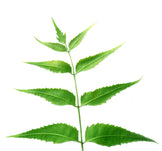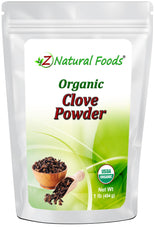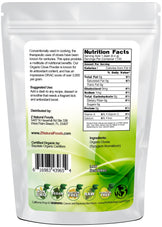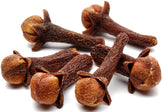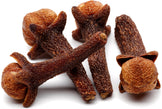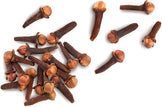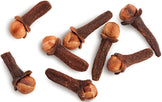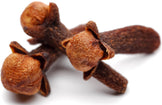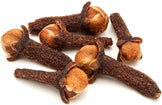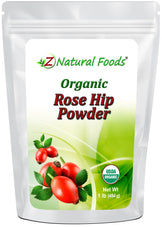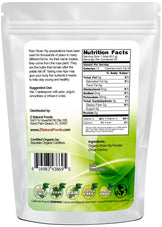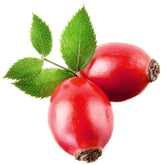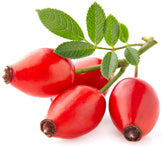Description
Description
A Master Herbalist’s Perspective
In a world with so many wonderful choices, how to decide what is good or bad for us can be quite overwhelming.
This especially applies to how we take care of our teeth and gums.
If you look at the label of most toothpaste and mouthwash, you need a degree in chemistry to pronounce 99% of what you see -- let alone know if it is good for you!
Perhaps it is time to...
Simplify our oral hygiene and allow nature to give us what we really need
Research and facts are coming out daily that teeth and gum health directly affects well-being.
Not only do we need to look at the foods we eat to keep our teeth and gums strong and healthy; we also need to look at our oral health care program.
Like so many other areas of health, there is much conflicting information about oral care. In the end, it all becomes about supporting big industry who has their bottom line as the priority. For most, it will be a surprise that ...
You already have at least 50% of the ingredients in your spice cabinet to take care of 99% of tooth and gum issues!
Below, I am going to discuss six foods, herbs and spices you can use to make the ultimate tooth powder.
Yes, this is a replacement for your expensive (toxic?) toothpaste and mouthwash.
Best of all, your teeth and gums will thank you down the line!
Neem
Unless you come from a culture where it is traditionally used, neem is one of those herbs you often don’t know what to do with.
Once you are done with this article, that one-pound bag which has been sitting in your cabinet for the last 6 months will finally be put to good use. Neem is a wonderfully powerful botanical, and very effective at keeping teeth and gums healthy and strong. This traditional ayurvedic herb is held in high regard for its possible antimicrobial effect which
- In one study which compared its effects as a root canal irrigant, it was shown to have
a greater antimicrobial effects then a 40% honey solution. (1) - Another study showed a dental gel which contained neem leaf had significantly reduced the plaque and bacteria count in one of the control groups. (2)
Cloves
Have you ever had a toothache in the middle of the night?
Did the four messages you left your dentist on his
As far as I am concerned, this is a perfect time to show your self-reliant side. Go to your spice cabinet, grab some whole cloves or clove powder and pack that hurting tooth full of it.
Before you know it, you are out of pain and back to sleep. The next morning, you can call and yell at your dentist for not responding to your calls. Clove is by far the number one spice and essential oil that has been studied for both pain and inflammation relief of both teeth and gums. It is by far the best go-to-spice everyone should have in their home in case of dental emergencies.
- One study looked at the possible effects on inflammatory cytokine production that clove oil had on mice. Clove was, in fact, found to inhibit macrophages to produce both IL-1B (A cytokine that is critical to host defense responses to infection and injury) and IL-6 (produced at the site of inflammation during infection and after trauma to stimulate an immune response). (3)
- Clove also showed its ability to inhibit the above cytokines in vitro at proper doses. Most importantly, clove showed to have an anti- and pro-oxidant effect on cells. (3)
- In another study, the effects of clove as a topical anesthetic was shown to be as effective as benzocaine gels. (4)
Rosehips
A wonderful natural food source of Vitamin C and bioflavonoids, Rosehip may have the ability to protect your teeth and gums from unhealthy bacterial infections.
While scurvy (A disease of vitamin c deficiency) is not exactly making front page news in our modern times, it is not out of the question that this issue can, in fact, may still be a cause of lesser decay. Scurvy can lead to bleeding gums and loss of teeth. (5)
Cayenne
As a Master Herbalist, I believe this powerful spice is a must-have in every home first-aid kit.
This is based on research and traditional use of this very powerful food with an amazing potential to affect a variety of issues because of its greatest action:
Enhanced Blood Circulation
Below are 3 wonderful studies which clearly express the impressive effects of capsaicin in regards to possibly supporting a healthy pain/inflammation response, and, cardiovascular health which there is a direct link between oral health and heart health.
- Topical capsaicin for pain management (6)
- Capsaicin and its potential application for vascular and metabolic health (7), (8)
- Biological activities of capsaicin (9)
In simple terms, the 3 studies above speak about how the powerful constituents found in cayenne and other hot peppers (
This simple potential action of supporting blood flow may have a direct effect on the heart and conditions that are affected by the pain and inflammation process.
Rebuild your teeth
It is common knowledge that...
Minerals are the key to keeping your bones and teeth strong and healthy (12)
The problem is that supplemental isolated minerals often fail due to lack of proper absorption which may potentially make the issue worse. It is also well-known that minerals in supplement form (because they are isolated and incomplete) need a binding agent in order to support absorption. This is why you need to take large amounts in order to get the small amounts your body requires for good health. Whole, nutrient-dense herbs like nettle leaf, oat straw
Sea Salt
One area of oral health care that all sides seem to agree upon is using a daily salt water rinse in order to prevent the potential for damage to your teeth and gums.
One study showed why just a little
- The study was done using teeth from people who just underwent molar extraction. The teeth were taken back to a lab where the gum tissue was separated and cultured. The cultured cells are known as gingival fibroblasts. These cultures were scratched to mimic an injury in the mouth. Over a short period of
time these cells were subjected to various concentrations of a saltwater solution and then checked for the progress of healing.
The following occurred:
- First, the lowest concentration was the one that showed the greatest amount of healing progress.
- Next, the researchers wanted to know the mechanism for the healing and found that is was because of the balancing of cell density that occurred during the natural healing process.
- The final observation was in regards to how the healing cells changed when they migrated. The salt water increased the formation of protein which helps cells attach together. This allowed for the cells to have a greater ability to anchor to the wound. (10)
Coconut oil
The traditional ancient practice of oil pulling for oral hygiene is a time-tested practice which has shown impressive results and saved people lots of money on expensive dental procedures. Oil pulling is done by taking a tablespoon of either organic coconut oil or olive oil and, swishing around in your mouth for 20 minutes.
After the 20 minutes, spit it out and rinse your mouth. Please, remember not to swallow the oil. The idea behind this time-tested practice is to remove bacteria from the teeth and gums which may reduce overall damage. So, you don’t want to swallow a mouth full of bacteria.
According to the research, this practice should be done on a daily basis 2x a day for 20 minutes each. It was also stated, not to swallow the oil due to the high bacteria count found after the therapy. According to tradition, the type of oils that can be used (olive, coconut or sesame) need to be organic and cold-pressed. Based on the study review, each one of these oils has unique compounds which may make them useful as a therapeutic agent. (11)
The Ultimate Herbal tooth care formula:
- 3 parts (1.5 ounces) Neem leaf powder
- 2 parts (1 ounce) One of the following (Horsetail grass powder, Nettle leaf powder or Oat straw powder)
- 1 part (½ ounce) clove power
- 1 part (½ ounce) cayenne powder
- 1 part (½ ounce) rosehip powder
This can be used in the following ways
- Toothpaste- Simply apply to a wet toothbrush
- Mouthwash- Add ¼ teaspoon to 6 oz of warm water and swish in mouth for 30 seconds
- A toothache, pain or bleeding gums - Add an amount large enough to cover the area in your mouth to a bowl. Then add just enough water to make a dry paste. Apply and pack into the affected area. This specific purpose, I would strongly suggest that you get some goldenseal root powder to add to the mix.
So, the next time you wake up in the middle of the night with a throbbing tooth, before you get upset that the dentist didn’t return your call hours later, keep in mind that your resolution is right in your kitchen cabinet.
About Michael Stuchiner
 Michael Stuchiner is an experienced Master Herbalist, the Head of Education for Z Natural Foods, a teacher, and an accomplished author. With a 16-year specialization in medicinal herbs, Mike also has a vast knowledge
Michael Stuchiner is an experienced Master Herbalist, the Head of Education for Z Natural Foods, a teacher, and an accomplished author. With a 16-year specialization in medicinal herbs, Mike also has a vast knowledge
As an “in-the-trenches” herbalist, Mike has done more than 85 speaking engagements, consulted with clients ranging from young to elderly, worked with athletes in virtually all sports and with clients who have “dis-ease” states of a wide variety. Mike also mentors student Master Herbalists and will continue to teach the next generation to grow a deeper wisdom of the human body through appropriate herbal remedies.
For Bulk inquiries and custom formulations click here: https://www.znaturalfoods.com/pages/bulk
References
1) Sundaram D1, Narayanan RK2, Vadakkepurayil K3. 2016. “A Comparative Evaluation
2) Pai MR1, Acharya LD, Udupa N. 2004. “Evaluation of
3) T.G.
4) Alqareer A1, Alyahya A, Andersson L. 2006. “The effect of clove and benzocaine versus placebo as topical anesthetics”. Pubmed.gov Accessed Jan 25,
5) Rubinoff AB, Latner PA, Pasut LA. 1989. “Vitamin C and oral health”. Pubmed.gov Accessed Jan 25,
6) P. Anand
7) Mark F McCarty,1 James J DiNicolantonio,2 and James H O'Keefe2. 2015. “Capsaicin may have important potential for promoting vascular and metabolic health”. Ncbi.nih.gov Accessed Jan 25,
8) https://www.acs.org/content/acs/en/pressroom/newsreleases/2012/march/hot-pepper-compound-could-help-hearts.html
9) Srinivasan K1. 2016. “Biological Activities of Red Pepper (Capsicum
10) https://www.integrativepractitioner.com/topics/nutrition/a-review-of-mineral-absorption-with-special-considehttp://journals.plos.org/plosone/article?id=10.1371/journal.pone.0159843 Ration-of-chelation-as-a-method-to-improve-bioavailability-of-mineral-supplements
11) Vagish Kumar L. Shanbhag. 2017. “Oil pulling for maintaining oral hygiene – A review” Pubmed.gov. Accessed Jan 25,
12)
